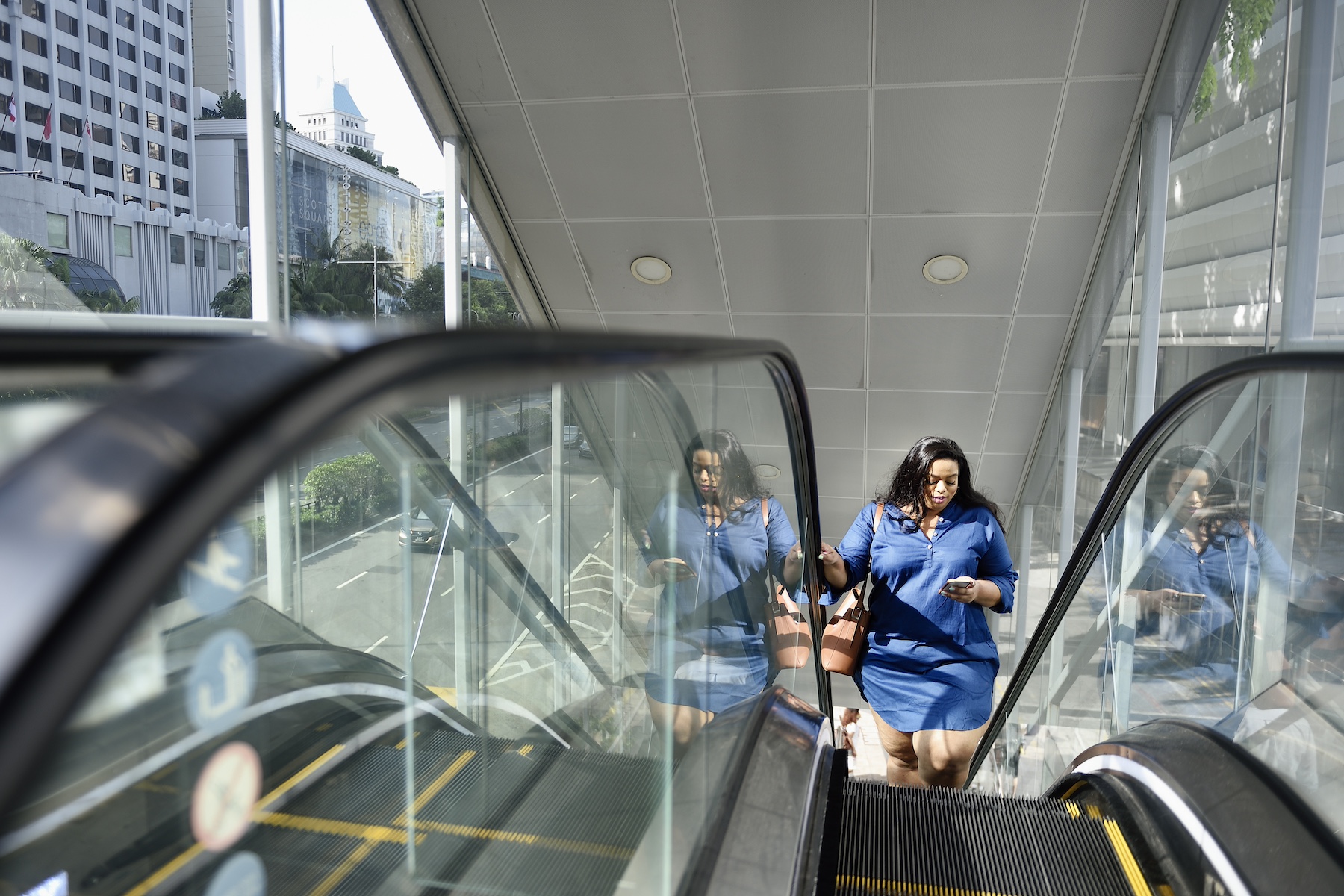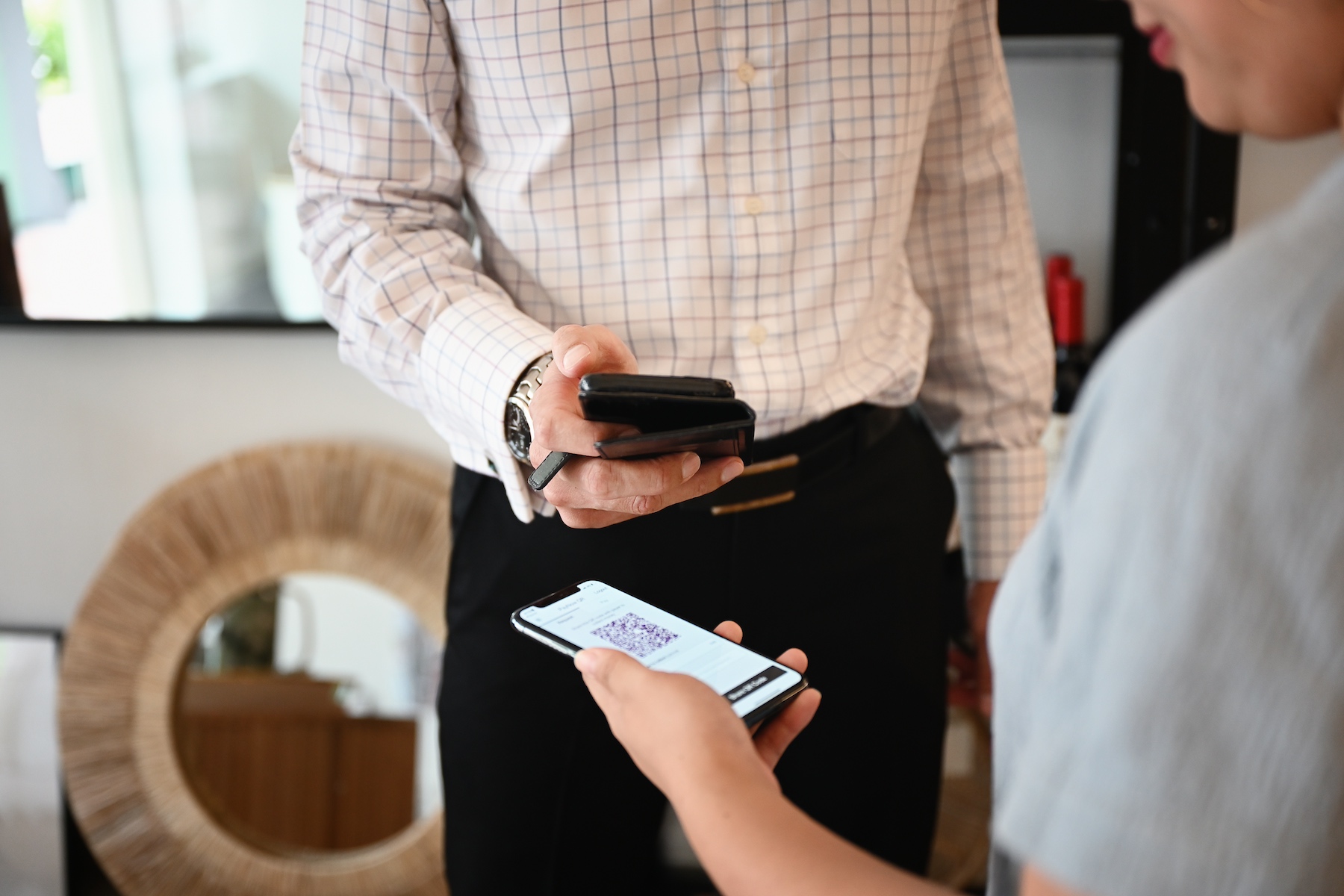Mobile banking is quick, convenient, and user-friendly in almost any country. If you’ve recently moved to Singapore, your phone alone can give you around-the-clock access to the Singaporean bank of your choice. You may still need to go to the branch for more complicated matters like mortgages or business accounts, but you can do most things online.
Most of all, mobile banking can keep your new life in Singapore connected with the rest of the world with various currencies and international transfer options.
Read on for more information about:
Wise
Do your finances go beyond borders? Then you need a fast and secure way to move money internationally. Wise is a global leader in online international money transfers, letting you move money at an exchange rate several times cheaper than your bank. Whatever your personal or business needs, Wise can make your money go further.
Mobile banking in Singapore
Technological advancement is a huge economic driver in Singapore, the world’s second-most digitally competitive country. With that in mind, its excellent mobile banking infrastructure shouldn’t be surprising. In 2022, a survey found that 81% of Singaporeans use some form of mobile banking app, and its national DBS Bank was named one of the top 10 global banks of 2023.

While mobile banking is prevalent in the country, most Singaporeans use traditional banks that offer an app as a feature rather than mobile-only. There are only two Singaporean mobile-only banks, although some international digital banks are available there.
Digital banks are often a good choice for expats who travel regularly, as all their features can be accessed online. They’re also an eco-friendly option with no paperwork involved. However, some customers prefer to have the option of using a branch when necessary.
What banking apps can you use in Singapore?
Which Singaporean banks have mobile apps?
Mobile apps are a standard feature of both Singaporean and international banks. The most popular choices include:
- DBS
- Oversea-Chinese Banking Corporation (OCBC)
- Post Office Savings Bank (POSB)
- United Overseas Bank (UOB)
Some international money transfer options are available to customers in Singapore. These include:
What are typical features of banking apps?
Mobile app features vary depending on the bank, but you can usually do the following as a customer:
- Open regular and savings accounts
- Transfer money
- Pay bills
- View statements
- Apply for loans, credit cards, insurance, and investment accounts
In addition, many banks in Singapore also have perks like reward schemes or exclusive deals and discounts. It’s common for banks to offer multi-currency accounts or exclusive exchange rates. To encourage expat customers, some banks, such as DBS, charge no fees on international transfers.
There are some limits to mobile banking in Singapore. For example, you can usually apply for loans and credit cards through a banking app; however, submitting a mortgage application or setting up a business account will require you to visit your branch in person.
How do you use a banking app?
To be able to use mobile banking, you’ll need to set up an account with either a Singaporean or international bank. The process for this is different depending on your nationality and residency status in Singapore.
You can open a bank account online with a Singaporean bank as long as you are registered with Singpass, the country’s digital ID scheme. Singpass is open to Singaporean citizens, permanent residents, and those who hold a Foreign Identification Number (FIN).
If you don’t have a Singpass yet, you may need to go in person to open a bank account. After that, bank customer service can provide the information and credentials you need to access the app.

After downloading and signing into the app, it’s a good idea to set up personal security measures. Past issues with malware scams have led Singaporean banks to include tight security features, but users should also add extra protective steps whenever possible. Most bank apps will let you to set enhanced features like two-factor authentication, fingerprint ID, or face ID.
How much are mobile banking fees in Singapore?
Most banks in Singapore do not have specific mobile banking fees. Depending on what kind of bank account you have, you might have to pay a monthly service fee, but this is quite rare for basic account holders. There are other more specialized fees to watch out for too, such as a ‘fall-below fee,’ where you are charged if your average balance goes below a threshold.
Transaction fees are low in Singapore, with giro transfers costing S$0.20. The charge for international payments can vary, with digital-only banks often giving lower rates.
Mobile banks in Singapore
How do mobile banks differ from traditional banks?
Mobile banks are digital-only, with no branches to visit. Most can be used easily across borders and have the option to hold multiple currencies in a single account. This makes them a desirable choice for expats. Here are the standard features you can usually find with a mobile bank account in Singapore:
- No or low fees
- High interest rates
- No minimum deposit requirement or fall-below fees
- Automated bill payments
- Current and savings accounts
While you should be able to take care of most of your needs using a mobile bank in Singapore, you might still need a traditional bank for loans and mortgages, as well as insurance.

When choosing a mobile bank, consider your needs. Some mobile banks charge a fee for cash withdrawals, while others are members of a particular ATM network. Look for a mobile bank with easy, low-cost currency transfers and the ability to hold as many currencies as you need.
While some Singaporean traditional banks allow you to hold around 10 different currencies in one account, mobile banks can be more flexible, with some offering up to 40.
A list of mobile banks in Singapore
How do you open a mobile bank account?
Digital banks streamline the account-opening process so that you can do it entirely online, even before you’ve officially moved to Singapore.
To open a mobile bank account, you usually need to:
- Download the bank’s mobile app
- Create an account holder profile including your name, residential address, email address, and phone number
- Upload a copy of your photo ID, plus take and submit a selfie for identity confirmation
- After choosing an account type, link any other accounts, set up auto-payments, and choose security features like two-factor authentication
How do you make mobile payments in Singapore?
Mobile payments are extremely popular in Singapore, with studies suggesting they will soon become the country’s most common form of payment. Many people use e-wallets, which allow them to scan their mobile phone and make payments directly from their bank account without a card. Some banks have their own e-wallet systems, while others are not affiliated with a particular bank.
The PayNow service is widely used all over the country. To make a payment, all you need is the recipient’s mobile phone number. There are 5.5 million PayNow accounts in Singapore as of 2023, which shows an extensive reach in a country with a population of around 6 million.

Another standard mobile payment service is the NETS e-wallet, which offers merchants the advantage of lower transaction fees. Merchants in small businesses commonly request payment by PayNow or NETS rather than with a traditional debit or credit card.
Is Singaporean mobile banking secure?
Singapore has experienced several high-profile fraud cases involving mobile banking. These include a S$2 million phishing scam and an S$8 million malware scam. As a result, the Monetary Authority of Singapore (MAS) has encouraged banks to improve their online security features. Singaporean banking apps’ security features have become so tight that they have even provoked backlash, as customers claim they infringe on privacy.
To stay safe while using mobile banking in Singapore, you may want to do the following:
- Protect your account with two-step verification, fingerprint ID, and/or facial recognition
- Use your banking app, rather than a web browser
- Do not disclose personal details to anyone, and carefully check any emails or messages that claim to come from your bank
- Learn how to freeze your account and bank cards for security purposes in case of suspicious activity
The MAS and Singapore Police Force (SPF) regularly release alerts about potential fraud. The SPF’s weekly scams bulletin provides a quick overview of any current dubious schemes.
Useful resources
- Monetary Authority of Singapore (MAS) – the financial regulatory agency of Singapore
- MoneySense – a Singaporean government resource to help with financial matters
- PayNow Singapore – the most popular mobile payment app in Singapore
- NETS – one of the most popular mobile payment apps in Singapore






